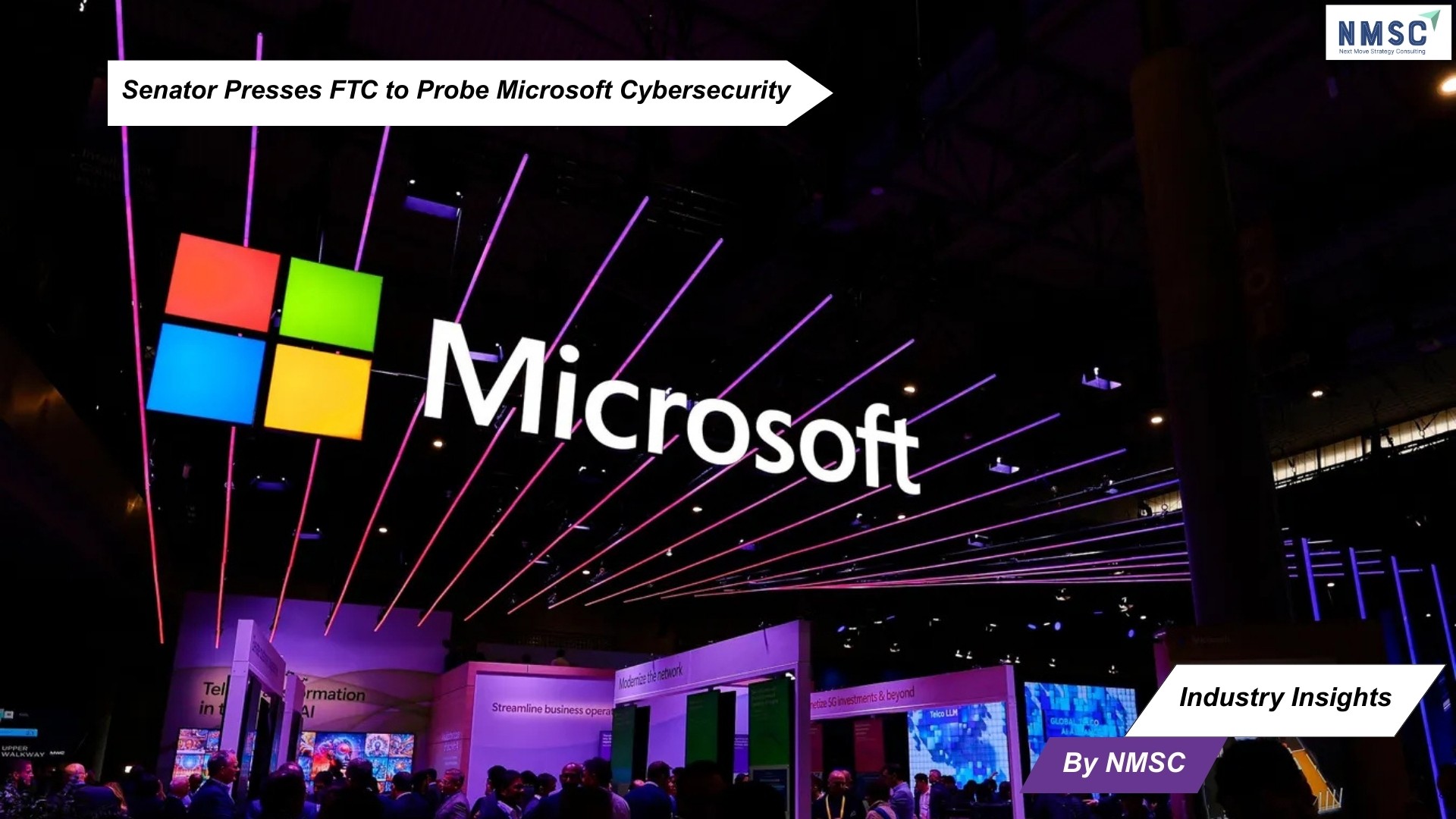Senator Presses FTC to Probe Microsoft Cybersecurity
Published: 2025-09-11

Industry Insights from Next Move Strategy Consulting
As ransomware attacks increasingly target critical infrastructure and a major hospital operator (Ascension) U.S. Democratic Senator Ron Wyden has called for regulatory scrutiny of Microsoft’s security practices. In a letter dated September 10, Wyden urged Federal Trade Commission (FTC) Chairman Andrew Ferguson to “investigate and hold Microsoft responsible,” claiming that the company’s security lapses continue to threaten U.S. national security.
Mounting Concerns Over Cybersecurity Practices
Wyden criticized Microsoft for what he described as “gross cybersecurity negligence,” asserting that weaknesses in the company’s default Windows configurations have played a role in recent cyber incidents. He compared the tech giant to “an arsonist selling firefighting services to their victims,” noting that government agencies and enterprises remain heavily dependent on Microsoft’s products due to its dominant position in enterprise IT.
The FTC confirmed receipt of Wyden’s letter but declined to provide additional comment.
A Hospital Breach Exposing Millions
As evidence of the risks tied to Microsoft’s products, Wyden pointed to the ransomware attack on hospital operator Ascension in May 2024.
According to Wyden, this incident allowed hackers to infiltrate Ascension’s network and compromise its Microsoft Active Directory server, which manages user accounts across the organization.
Next Move Strategy Consulting Perspective: Market Impact
Senator Ron Wyden’s push for an FTC probe into Microsoft highlights a turning point for the cybersecurity market. Rising regulatory scrutiny is set to increase accountability, pushing vendors to strengthen security by default and phase out outdated protocols. For enterprises, this means greater emphasis on zero-trust models, identity governance, and proactive risk management. The case also reinforces the need for innovation in adaptive threat detection, real-time analytics, and integrated defense systems. From Next Move Strategy Consulting’s view, this development will accelerate a broader industry shift where resilience, interoperability, and proactive defense define trust and competitiveness in the cybersecurity landscape.
Microsoft’s Response and Planned Measures
Responding to the criticism, a Microsoft spokesperson acknowledged the use of the RC4 encryption standard, which Wyden highlighted as outdated. The company stated that RC4 now accounts for “less than .1% of our traffic” and emphasized that it discourages customers from relying on it.
Microsoft noted, however, that a complete removal of RC4 could disrupt many customer systems. The company is gradually phasing out the standard and confirmed that RC4 will be disabled by default in certain Windows products beginning in the first quarter of 2026. Additional mitigations are planned to support organizations with existing deployments.
A Spotlight
Wyden’s appeal underscores a growing debate over accountability in the cybersecurity sector, particularly as attacks against hospitals, infrastructure, and other vital institutions escalate.
Source: Reuters
Prepared by: Next Move Strategy Consulting
About the Author
 Pritish Braman is a Digital Marketing Executive with over a year of experience, specializing in content writing and online engagement. He enjoys creating clear, impactful content that connects with readers while also applying marketing strategies to reach wider audiences.
Pritish Braman is a Digital Marketing Executive with over a year of experience, specializing in content writing and online engagement. He enjoys creating clear, impactful content that connects with readers while also applying marketing strategies to reach wider audiences.
About the Reviewer
 Sanyukta Deb is a seasoned Content Writer and Team Leader in Digital Marketing, known for her expertise in crafting online visibility strategies and navigating the dynamic digital landscape. With a flair for developing data-driven campaigns and producing compelling, audience-focused content, she helps brands elevate their presence and deepen user engagement. Beyond her professional endeavors, she finds inspiration in creative projects and design pursuits.
Sanyukta Deb is a seasoned Content Writer and Team Leader in Digital Marketing, known for her expertise in crafting online visibility strategies and navigating the dynamic digital landscape. With a flair for developing data-driven campaigns and producing compelling, audience-focused content, she helps brands elevate their presence and deepen user engagement. Beyond her professional endeavors, she finds inspiration in creative projects and design pursuits.
















Add Comment